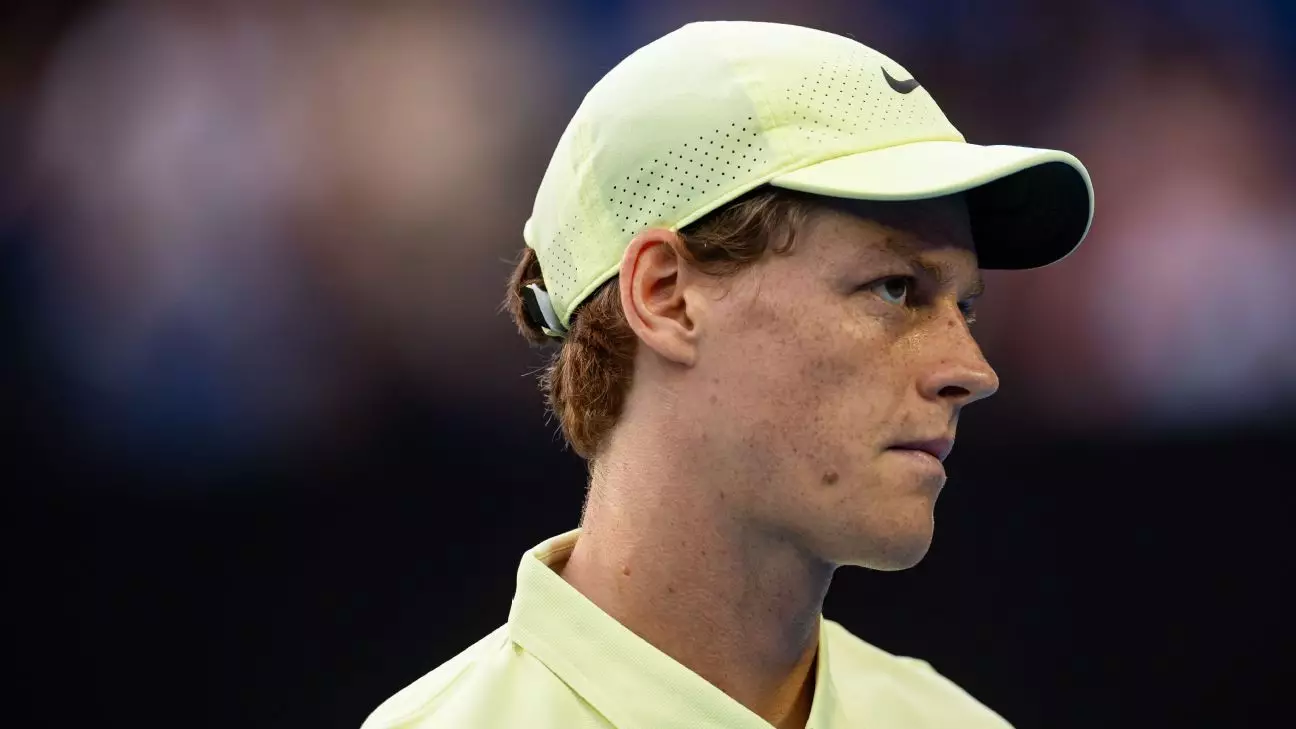As Jannik Sinner steps onto the court at the Italian Open, he does so not merely as a top-ranked player but as a man who has faced unprecedented challenges in his career. The last few months have tested both his mental fortitude and his standing within the tennis community, all stemming from a controversial doping ban. What is perhaps most striking is how his fellow athletes reacted to his situation. Sinner has openly shared his surprise at the messages of support and the conspicuous absence of others he anticipated reaching out to him during this tumultuous time. This revelation highlights the often-unspoken dynamics at play in professional sports, where camaraderie can sometimes clash with competitive instincts and self-preservation.
In a sport where one’s reputation can be as fragile as a serve, Sinner’s experience sheds light on the fragility of athlete relationships. While the support from certain players was a comfort, the lack of outreach from others may leave a lingering sting. Sinner’s choice to withhold names further emphasizes how sensitive these interactions can be; acknowledging support while simultaneously grappling with disappointment creates a complex emotional landscape. It is here that Sinner truly embodies the athlete’s plight: fighting not just against opponents on the court but also against the skepticism of peers.
The Weight of Suspicion
Even as Sinner prepares to compete again, he has expressed discomfort within the locker room, revealing that the perception of him has shifted markedly due to the doping allegations. His comments highlight a critical aspect of athletic competition: how rumors and past controversies can alter the dynamics of team spirit and trust. Within the locker room, these subtle shifts in behavior can lead to feelings of isolation. Coach Simone Vagnozzi corroborated this, suggesting that such scrutiny is inevitable once a player finds themselves at the center of a polarizing incident.
It is vital to approach Sinner’s sentiments with an understanding of the psychological burdens athletes bear. The innate pressures of competition are exacerbated when trust becomes a precipice upon which one’s career rests. The ongoing tension between public perception and personal integrity serves as a testament to the complex nature of professional sports.
Support from Unlikely Allies
While many might expect isolation following a scandal, Sinner revealed that a number of unexpected voices have spoken out in support of him, including his competitors. Holger Rune, Casper Ruud, and Alexander Zverev were highlighted as players who offered comforting words during his time away from competition. Such gestures illuminate the duality of sportsmanship; while rivalries fuel competitive spirit, camaraderie can emerge even amid controversies. This aspect of professionalism raises critical questions about the nature of friendship in sports and the importance of solidarity in the face of mutual adversity.
The shift in Sinner’s situation might also serve as a rallying point for discussions about the integrity of anti-doping regulations. Some of his peers have expressed their belief that his punishment was unusually lenient. This dissent not only speaks to the scrutiny faced by athletes but also brings to the forefront the systemic imperfections that exist within sports governance. As players hold each other accountable, they also reveal a collective responsibility, as well as a desire for a level playing field.
The Road Ahead: Training and Anticipation
In the final stages of his suspension, Sinner’s focus shifted towards preparation. Practicing with peers like Jack Draper and Lorenzo Sonego in the tranquil surroundings of Monaco, he maintained his competitive edge despite the forced hiatus. The psychological aspect of training can often be overlooked; even the most talented athletes require consistent engagement with their craft to remain sharp. Sinner’s commitment to maintain his readiness underscores an essential truth in any sport: no athlete is immune to the pressures of performance, especially after a significant time away from the game.
Now, as he prepares to face Mariano Navone, expectations are both high and steeped in uncertainty. Entering the tournament on a formidable 21-match winning streak serves as a backdrop against which Sinner must navigate the red clay of the Foro Italico— a surface, as noted by Vagnozzi, where he has shown vulnerability.
His trajectory will undoubtedly take center stage, but the context of his return after facing challenges both on and off the court adds an extraordinary layer to his upcoming matches. With history on his mind—the last Italian man to win the Rome title was Adriano Panatta in 1976—Sinner’s dual aim is clear: to reclaim his position within the sport and to transcend the stigma that has accompanied his name. This dual journey encapsulates not only the return to physical competition but also a battle for respect and integrity in a deeply scrutinized arena.

